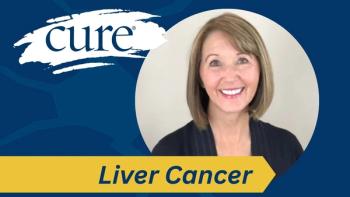
- GI Special Issue
- Volume 1
- Issue 1
Targeted Therapy Response Can Predict Survival in HCC, Findings Suggest
Patients with previously untreated liver cancer, or hepa­tocellular carcinoma (HCC), lived twice as long if they responded to a tyrosine kinase inhibitor, a type of targeted therapy.
Patients with previously untreated liver cancer, or hepa­tocellular carcinoma (HCC), lived twice as long if they responded to a tyrosine kinase inhibitor, a type of targeted therapy, compared with patients for whom the drug had little benefit, according to an analy­sis of results from a randomized clinical trial.
Responders to Lenvima (lenva­tinib) or Nexavar (sorafenib) lived a median of 22.4 months versus 11.4 months for patients who did not achieve either a partial or complete response. The analysis considered a variety of factors that could have affected overall survival and identi­fied response to treatment as a way to predict this outcome.
“The association between objec­tive response and overall survival was consistent with results reported in previous studies,” said Masatoshi Kudo, M.D., of Kindai University Faculty of Medicine in Osaka, Japan. “Therefore, patients who achieve an objective response can potentially expect a longer overall survival.” Objective response refers to the pro­portion of patients who experienced a prespecified amount of tumor shrink­age lasting at least a certain amount of time.
Additional studies are needed to validate the association between objective response and survival, Kudo added.
The data analyzed came from the phase 3 REFLECT trial, which compared Lenvima and Nexavar in patients with previously untreated HCC and found that Lenvima was more effective. An analysis of response at two, four and six months showed a significant sur­vival advantage, ranging from five to seven months, for patients who responded to treatment.
Articles in this issue
almost 7 years ago
Anticipating Treatment's Side Effects Can Help Alleviate Themalmost 7 years ago
After Surgery, Lonsurf Remains Helpful in Gastric Canceralmost 7 years ago
Looking Beneath the Surface in Colorectal Canceralmost 7 years ago
BRAF V600E-Mutated Cholangiocarcinoma Responds to Drug Comboalmost 7 years ago
Embracing Multitasking: Combining Treatments for Pancreatic Cancer



